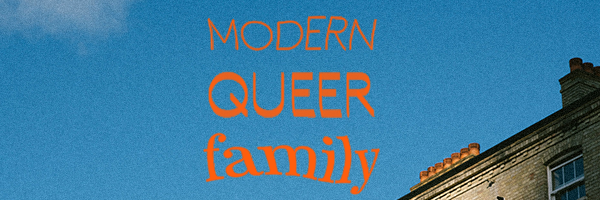If You’re Queer, Starting A Family Is Exhausting, Terrifying & Exhilarating
For a large part of my life I’ve thought about having kids the same way I thought about getting married: I understood it as something that people do but it was not something I could picture for myself.
I’d try to imagine the big white dress, my Catholic church, a hazy groom and I’d feel no draw to it. I’d try to imagine myself christening a new child and could never fit the pieces together in a way that matched my own family. It created in me a sense of immense distance from these societal institutions, which I told myself was disinterest. It was not for me and that, I guessed, was fine.
AdvertisementADVERTISEMENT
When I shifted away from the church in my teen years and then came out as a lesbian at 19, there was a glittering period where all that distance made sense. My sexuality was the most obvious answer to why I felt the way I did, I’d just never noticed before. But as I got older and fell in love with the woman who would become my wife, I began to notice that the distance between me and "normal life" now contained a gulf-like absence. I’d look at one of the most established institutions in the Western world – the nuclear family – and realise I had no idea how someone like me could begin to create my own family. I had no idea what discrimination we would face or how we would fit into the world. Society provided nothing more than hints and rumours of what it would be like for me and my wife if or when we chose to start trying.
Unlike cis straight people, LGBTQ+ people have no expectations impressed upon us when it comes to producing or caring for children. At a societal level, a family is still broadly understood to need two parents, a (cis) man and a (cis) woman. And women who announce they don’t want to have children are often derided. It’s a restrictive system which doesn’t look favourably on single parenthood, co-parenting or any choice that doesn’t revolve around a husband and 2.4 kids. Queer people, on the other hand, are free from these societal expectations. Unburdened by the imposition of family life, we are free to make choices which are entirely our own. The modern queer family is formed without an existing roadmap. It is a path taken by choice; a path which is equal parts exhilarating and terrifying. But despite the freedom from expectations, it’s far from an easy journey to make.
AdvertisementADVERTISEMENT
Though many of us may not have a clear idea of how families can form, it feels like it's been relatively easy for straight people to assume that the existence of LGBTQ+ families (and the right for them to exist) is no longer up for debate. But you only have to look outside the bubble to see that queer families are still seen by many as an aberration. As recently as a month ago, Laura-Rose Thorogood from The LGBT Mummies Tribe was trolled following a Channel 4 interview about IVF access and told: "I do not see why your choice of having a kid should be left for me to pick up the bill on."
This week, Refinery29 is going to parse out what it means today to have a family that exists beyond the nuclear, cis, straight understanding in a series called Modern Queer Family. Throughout the week, we will explore the complicated, knotty and expensive world of trying to conceive as a queer person in the UK. We will illustrate how the birthing world is not built to accommodate trans, non-binary or queer people. We will look at how the lack of representation in TV and film of Black queer families impacts young Black queer people’s vision of their future. We will look at why adoption is often considered a "last chance" and explain why we need to rethink this stigma. And in a political and cultural climate soaked in transphobia, we will hear how the family you choose can be integral to the survival of young trans and non-binary people in the UK.
AdvertisementADVERTISEMENT
There are many hopeful and heartwarming stories coming up this week, too: articles featuring tips from queer parents about how to raise the kind of boy you want to see in the world, a beautiful photo story that offers a window into the life of a young queer family, and a joyful look at how adoption gave two women the perfect addition their family was looking for.
There is still so much that needs to change for LGBTQ+ people to be truly equal. The barriers that get in the way of LGBTQ+ people becoming parents are extensive. From the struggle to access NHS funding for IVF to fighting the stigma around adoption, to the need for better training for medical professionals and the importance of continuing to push back against transphobic scaremongering, there are many ways in which the law and provisions do not provide for queer people. But the more space LGBTQ+ people take up and the more visible we are, the more hopeful I am that we can shout down or even change the minds of those who accuse us of demanding their tax money to fund our "degenerate lifestyles".
With Modern Queer Family, I hope to answer the questions I had as a young, guileless lesbian and start showing the wealth of ways that people in the LGBTQ+ community can form a family. This week shows that queer families are the new normal and that the modern iteration of family is formed in many different ways but is centred on care and love above anything else.
AdvertisementADVERTISEMENT







